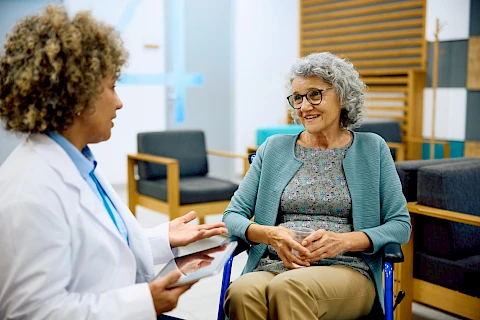
Effective communication with healthcare providers is essential for seniors and their caregivers. Health concerns can become more complex, making it important to have open and clear discussions with doctors. Medical appointments for seniors can sometimes be challenging due to various factors, like multiple medical conditions or simply feeling overwhelmed during checkups.
Senior Helpers Carlisle offers this guide to help you or your loved ones navigate these medical appointments.
Prepare for the Appointment
Preparation can go a long way in having successful medical appointments for seniors. Here are a few things to consider:
- Make a List — Make a list of seniors' symptoms and concerns. Write down everything they have been experiencing, even if it seems minor. This ensures you don't forget to mention anything important during the appointment.
- Prioritize Questions — Start with the most pressing issues and work your way down. This helps ensure that the most critical concerns get addressed first.
- Bring Relevant Information — Gather seniors' relevant medical history and documents. Bring recent test results, a list of medications they are taking, and any other pertinent information. This helps the doctor get a full picture of their health.
During the Appointment
There are several strategies to ensure you get the most out of seniors' medical appointments. Start by asking clear and concise questions. Be as specific as possible to get the most accurate answers. For example, if seniors are experiencing pain, let them describe where it is, how it feels, and when it happens. It is also a good idea to take notes or even record the conversation if it is allowed. This can help seniors remember what was discussed, especially if there are important details to keep track of.
Bringing a trusted companion along can also be incredibly beneficial. They can provide emotional support, help seniors remember questions they want to ask, and take notes for them.
Let Seniors Advocate for Themselves
Allow seniors to communicate their needs and preferences during their medical appointments. Let them speak up about what they are comfortable with and what they are not. If they don't understand medical terms or instructions, ask for clarification. Doctors are there to help them and should be willing to explain things in a way that seniors can understand. When discussing treatment options, ask about potential side effects and how they might affect seniors. Understanding the pros and cons of each option can help you and your loved ones make an informed decision.
When to Seek a Second Opinion
Sometimes seniors may feel uncertain about a diagnosis or treatment plan. This is when seeking a second opinion can be beneficial. If something doesn't feel right or they are unsure about a decision, it's okay to look for another perspective.
Find another healthcare provider who specializes in their condition and bring all their medical records to avoid repeating tests. Discuss their decision to seek a second opinion with their current doctor. Most doctors understand the importance of feeling confident in seniors' health care decisions and will support them in seeking additional advice.
Senior Helpers Offers Companion Care
Senior Helpers provides a wide range of compassionate, in-home senior care services, including companion care. If you or a loved one lives in the Carlisle, Shippensburg, Waynesboro, or Fayetteville areas, contact us today at Senior Helpers Carlisle. We are happy to support you or your loved one in communicating with healthcare providers so they receive the care they deserve.